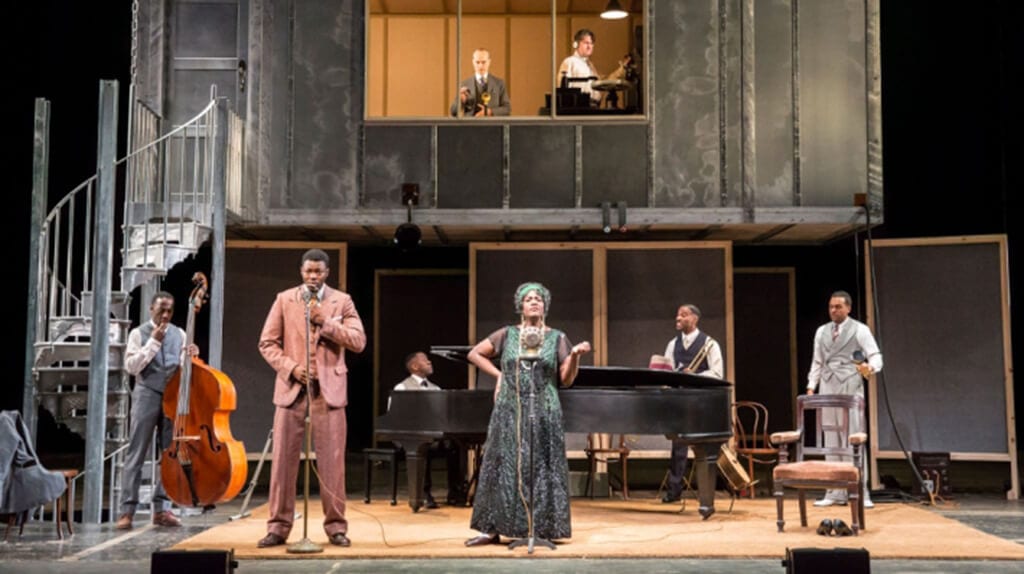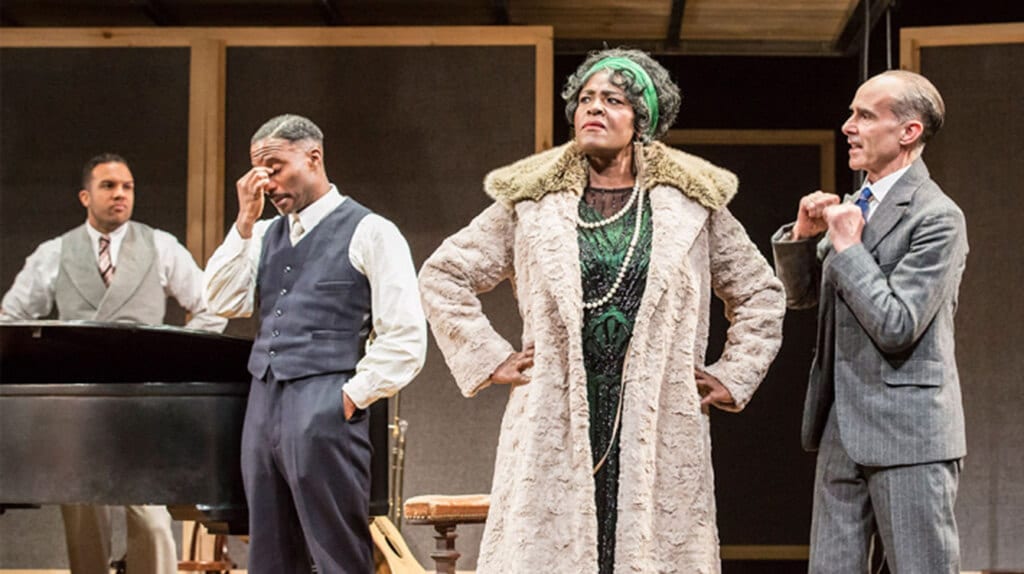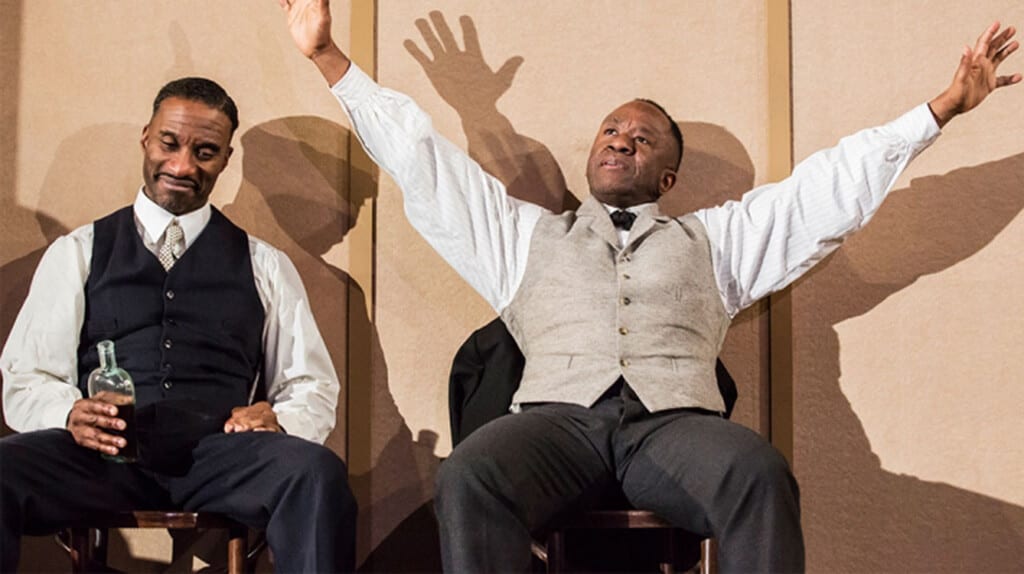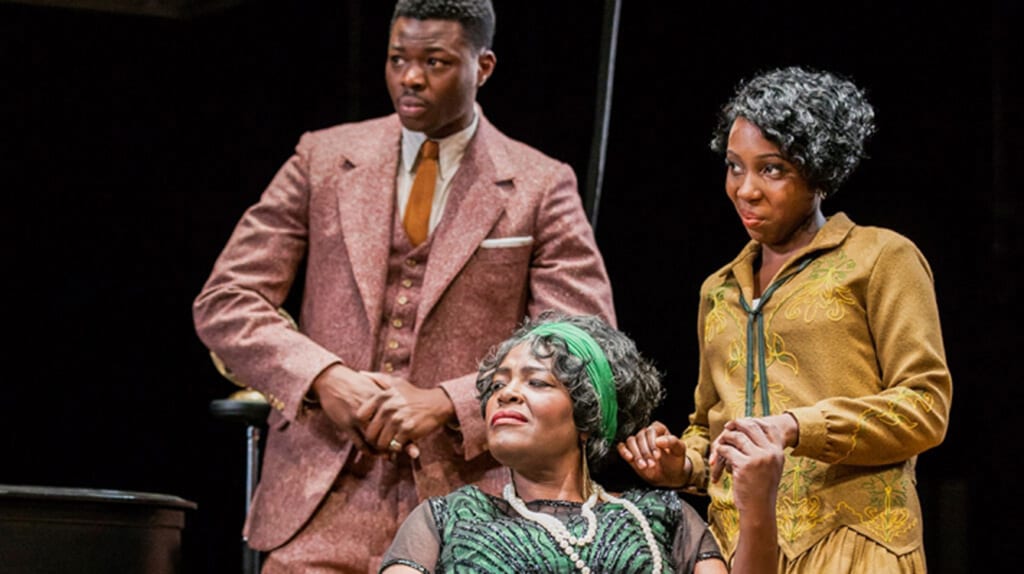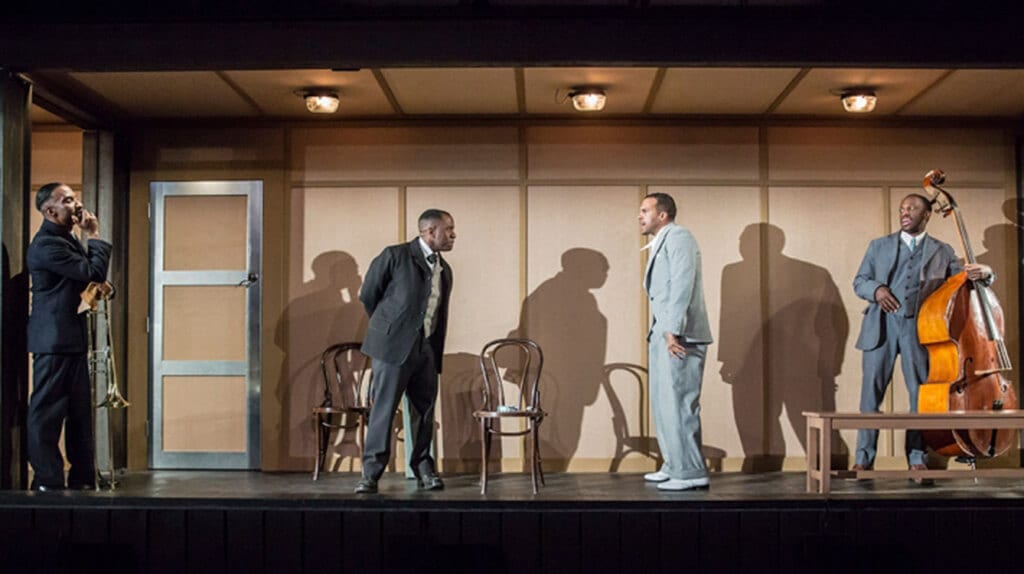White folks don’t understand about the blues. They hear it come out but they don’t know how it got there. Ma Rainey’s Black Bottom is in town to tell you a story of self-determination, presentation and honesty as a Black American. Set at the “Mother of the Blues” Ma Rainey’s 1927 recording session of “Black Bottom”, this brilliant revival of August Wilson’s play rakes over how the blues – the music and the feeling – has been beaten, worked and scared into the heart of Black Americans.
Ma Rainey’s name may be the one in the title, but the show spends most of the time down in the band room waiting for the word to play and swapping stories with the band, Toledo (Msamati), Cutler (Dyer), Slow Drag (Terera) and Levee (Fagbenle). This is where the meat of the show is, as it really delves into each character’s experience of their world defined by their race. There are a lot of monologues but this isn’t a stream of heavy polemic. Each speech is so intricate, so cleverly written and often so funny that they flow seamlessly, feeling absolutely natural with the characters and setting. The four musicians are the heart and soul of the piece, and their dialogue is as tight as a drum. Most of the powerful exchanges occur between the quick-tempered jazzman Levee and the stoic bluesman Toledo, but all four get their turn. They all turn in captivating performances that work together wonderfully, and only get better as the characters become deeper. Seeing the way their manners change depending on who’s walked into the room illustrates their conversations further, and their bickering makes a show where not a lot happens an easy joy. The show is slow but strong with its pace, very funny and very sad, just like the blues.
Up in the recording studio, Clarke plays an exacting Ma Rainey, aloof, skeptical and strong, forged in the fires of encountering opposition every step of the way. She’s bold enough to show up an hour late, have a public lesbian relationship in the 1920’s and demand her stuttering nephew record an introduction, because she knows that the white producers are only concerned about squeezing money out of her. She knows herself and what she wants to do, and she wants to own everything she does. As she tells Cutler; “This is an empty world without the blues. I take that emptiness and try to fill it up with something.”
This empty world Ma Rainey mentioned is portrayed through a harsh-looking set, a suspended shipping container for an office, an iron spiral staircase and a wide grand piano. This small slice sits in the middle of the cavernous Lyttelton theatre, and echoes the bare honesty that the musicians are seeking and that the blues grows from. The band room is slightly warmer, but still it seems forgotten, a space begrudgingly given to these black men.
Ma Rainey’s Black Bottom is an incredibly deep analysis of worth, self-worth and societal inclusion, and it’s wrapped up in enough laughter, fears and tears to enthrall anyone of any race, gender or creed.

